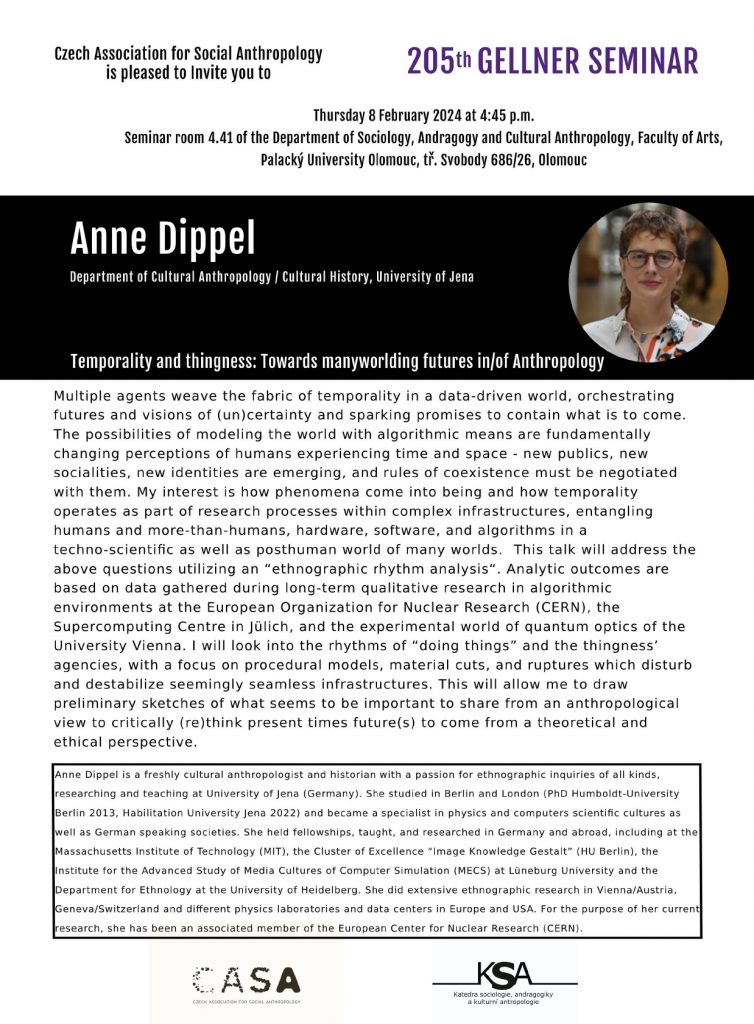
Abstrakt
Multiple agents weave the fabric of temporality in a data-driven world, orchestrating futures and visions of (un)certainty and sparking promises to contain what is to come. The possibilities of modeling the world with algorithmic means are fundamentally changing perceptions of humans experiencing time and space – new publics, new socialities, new identities are emerging, and rules of coexistence must be negotiated with them. My interest is how phenomena come into being and how temporality operates as part of research processes within complex infrastructures, entangling humans and more-than-humans, hardware, software, and algorithms in a techno-scientific as well as posthuman world of many worlds. This talk will address the above questions utilizing an “ethnographic rhythm analysis“. Analytic outcomes are based on data gathered during long-term qualitative research in algorithmic environments at the European Organization for Nuclear Research (CERN), the Supercomputing Centre in Jülich, and the experimental world of quantum optics of the University Vienna. I will look into the rhythms of “doing things” and the thingness’ agencies, with a focus on procedural models, material cuts, and ruptures which disturb and destabilize seemingly seamless infrastructures. This will allow me to draw preliminary sketches of what seems to be important to share from an anthropological view to critically (re)think present times future(s) to come from a theoretical and ethical perspective.
Bio
Anne Dippel is a freshly cultural anthropologist and historian with a passion for ethnographic inquiries of all kinds, researching and teaching at University of Jena (Germany). She studied in Berlin and London (PhD Humboldt-University Berlin 2013, Habilitation University Jena 2022) and became a specialist in physics and computers scientific cultures as well as German speaking societies. She held fellowships, taught, and researched in Germany and abroad, including at the Massachusetts Institute of Technology (MIT), the Cluster of Excellence “Image Knowledge Gestalt” (HU Berlin), the Institute for the Advanced Study of Media Cultures of Computer Simulation (MECS) at Lüneburg University and the Department for Ethnology at the University of Heidelberg. She did extensive ethnographic research in Vienna/Austria, Geneva/Switzerland and different physics laboratories and data centers in Europe and USA. For the purpose of her current research, she has been an associated member of the European Center for Nuclear Research (CERN).